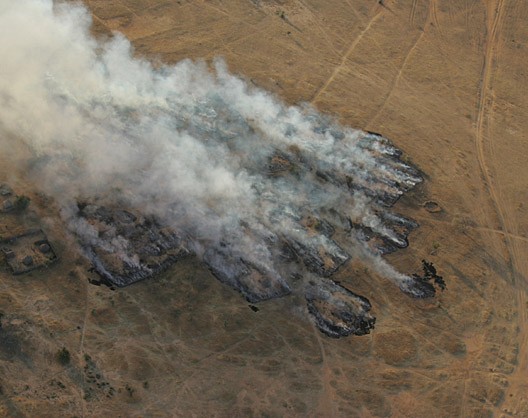
What is Genocide?
“Genocide” is an internationally recognized crime. The term has a specific legal definition. It refers to certain acts committed with the intent to destroy, in whole or in part, a national, ethnic, racial, or religious group.
Key Facts
-
1
The word “genocide” was created by the Polish-Jewish lawyer, Raphael Lemkin. He coined it to help describe early 20th century attempts to destroy entire nations and ethnic groups, including the Holocaust.
-
2
The chief prosecutors of the International Military Tribunal (1945–1946) used the term “genocide” in their indictment of Nazi leaders, but “genocide” was not recognized as an international crime until 1948.
-
3
Since 1948, the term “genocide” has often been used. However, “genocide” according to the legal definition—which includes an intent to destroy a targeted group—is rarely committed compared to other serious crimes, such as crimes against humanity and war crimes.
The legal term “genocide” refers to certain acts committed with the intent to destroy, in whole or in part, a national, ethnic, racial, or religious group. Genocide is an international crime, according to the Convention on the Prevention and Punishment of the Crime of Genocide (1948). The acts that constitute genocide fall into five categories:
- Killing members of the group
- Causing serious bodily or mental harm to members of the group
- Deliberately inflicting on the group conditions of life calculated to bring about its physical destruction, in whole or in part
- Imposing measures intended to prevent births within the group
- Forcibly transferring children of the group to another group
Although the term “genocide” is often used, its commission is rare when compared to other serious crimes that are not defined by an intent to destroy a targeted group, such as crimes against humanity and war crimes.
Origin of the Term “Genocide”
The word “genocide” did not exist prior to World War II. It is a specific term coined in 1942 by Polish-Jewish lawyer Raphael Lemkin (1900–1959) and first used in print in his 1944 book, Axis Rule in Occupied Europe. In his book, Lemkin analyzed Nazi policies of systematic persecution and mass murder during World War II. His analysis included descriptions of the destruction of European Jews, which today is referred to as the Holocaust. He formed the word genocide by combining geno-, from the Greek word for race or tribe, with -cide, from the Latin word for killing. Lemkin defined “genocide” as "a coordinated plan of different actions aiming at the destruction of essential foundations of the life of national groups, with the aim of annihilating the groups themselves."
Early Use of the Term “Genocide” in the International Military Tribunal
In 1945, the International Military Tribunal (IMT) was held in Nuremberg, Germany. During the trial, 24 high-ranking Nazi officials were charged with crimes against humanity and war crimes, among other crimes, as defined by the Nuremberg Charter.
The word “genocide” was used in the indictment as a way to describe Nazi crimes of the Holocaust. It was not, however, a legal term at this time.
Genocide as an International Crime
After the Holocaust, the word “genocide” was established as a legal term for a specifically defined international crime.
On December 9, 1948, the United Nations approved a written agreement known as the Convention on the Prevention and Punishment of the Crime of Genocide. The adoption of this convention was in no small part due to the tireless efforts of Raphael Lemkin. By the end of the 1950s, over 65 UN member states had signed it. As of April 2022, 153 states have ratified the convention (meaning they have agreed to follow its terms).
The convention established genocide as an international crime. The obligation to prevent and punish is binding on all states, even those that have not ratified the convention. Preventing and punishing genocide remain ongoing challenges that states, institutions, and individuals continue to face.
Critical Thinking Questions
Genocide was recognized as an international crime in 1948. Since then, what events have been legally determined to constitute genocide?
Why would the label of genocide be resisted or denied by non-involved countries?

